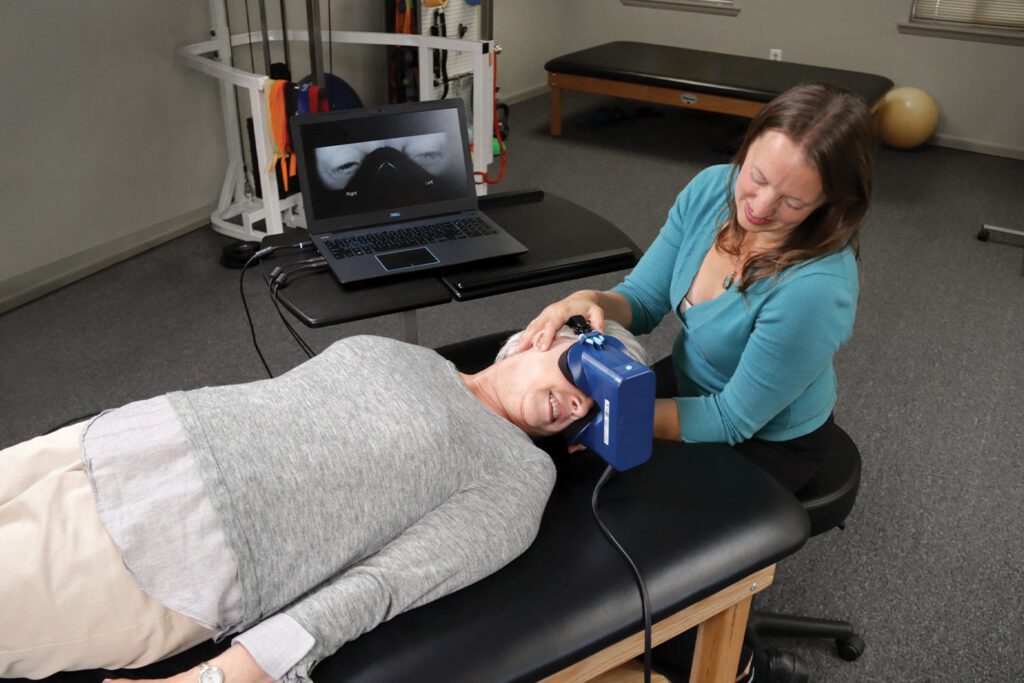This eye-tracking technology helps identify balance-related issues.
Vestibular Infrared (IR) Video Goggles, also known as Video Frenzel Lenses, track a patient’s eye movements to assess problems with vertigo and dizziness. This advanced technology can help physical therapists accurately identify the cause of imbalance.
How Does It Work?
Vestibular goggles look similar to virtual reality headsets and fit comfortably on your head using a strap and padding. The goggles are wired into a laptop, where your physical therapist is provided with clear images of your eyes.


During the testing, you will be unable to see anything except the technology displayed through the goggles. This technology tracks small eye movements that give your physical therapist a better understanding of what is causing your balance-related issues.
The Benefits of Vestibular IR Video Goggles
State-of-the-art. Vestibular goggles have revolutionized physical therapists’ ability to track patients’ eye movements. By utilizing video technology, the goggles can reveal otherwise indiscernible eye movements that the previous optical model could not. The ability to observe these movements has greatly benefited the diagnosis process.
Broad scope. Because many different issues can cause dizziness and vertigo, vestibular goggles can identify a wide range of disorders. Ear infections, motion sensitivity, and even more serious conditions like stroke and brain injury can be identified using this device.
Informed treatment. An accurate diagnosis using vestibular goggles allows your physical therapist to provide individualized care as you return to daily activities. This technology can help inform treatment plans that aid balance, decrease dizziness and vertigo, and most importantly, improve your quality of life.


